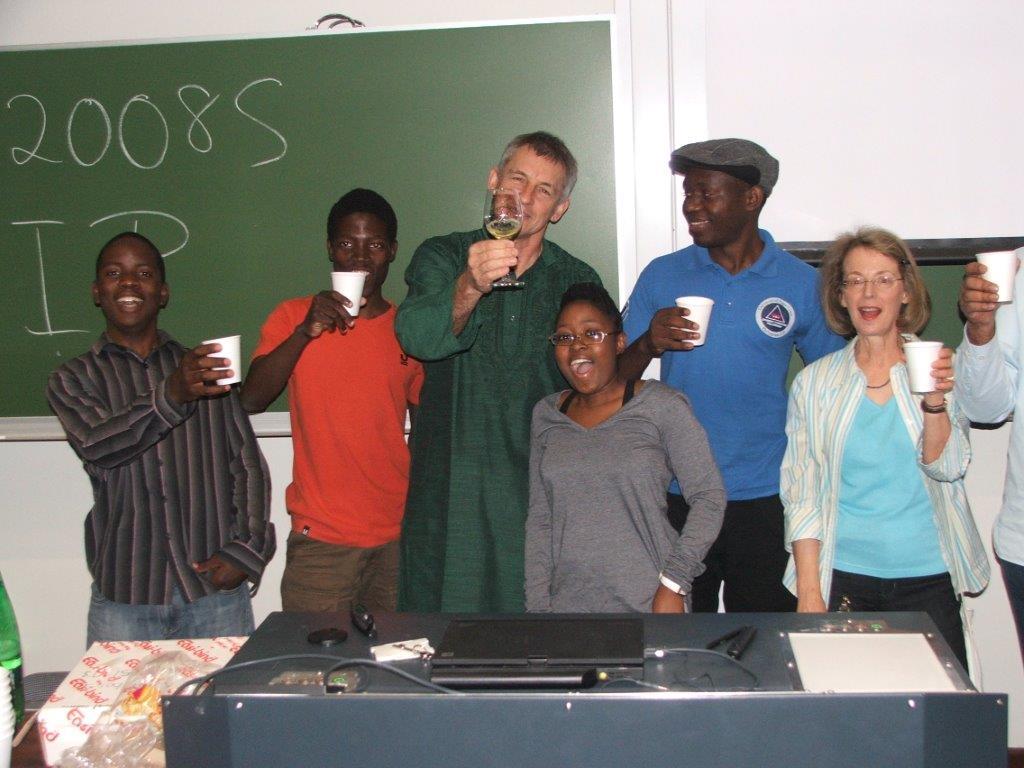Death of a killer course! Long live!

Friday 17th October 2014 will go down in history, as the day of the very last lecture – ever – in CEM2008S, and this course was laid to rest: a killer course meeting its fate. It will be incorporated next year into a new second year Chemistry course, CEM2005W. Associate Professor David Gammon had the honour of delivering the last lecture (for the record, it was a stirring exposition on the subtleties of enolate chemistry in organic synthesis …) and was also on hand to perform the final rites, and lead the combination of memorial service and wild celebration. Dressed in genuine north Indian kurta and pyjama (whose genre was admittedly only tenuously connected to the occoasion, and yet received accolades from fashionistas and paparazzi alike for its simple, yet universal ethno-elegance, symbolizing the delicate balance between respectful mourning and wild celebration ; producers were left searching for the end of the phrase “dressed by …”), he delivered a simple, moving eulogy, praising students and lecturers past and present (some other key staff involved with the course were on hand, including Dr Anwar Jardine, Assoc Prof Bette Davidowitz, and Ms Claire Lawrence-Naidoo), and raising a glass to the now-departed while reflecting teary-eyed on the warm memories and rich texture of the course. No excuse was offered for including a percentage of ethanol in the celebratory beverage: this was, after all, a course which dealt, inter alia, with the chemistry of the simple alcohols. So why a “killer course”? Well, the term is now outlawed, of course, in favour of the less violent, more politically correct “courses impeding graduation” which has found its way into the popular discourse, but suffice to say that the Chemistry Department took the warnings seriously and launched an effort to re-think things, and to try to understand why students found CEM2008s and its sister course CEM2007F particularly challenging. The curriculum has been reviewed and rationalized, and will now be rolled out at even pace over a whole year, with better referencing of the first and third-year courses on either end of it. Conscious effort will be put into delivering a better-integrated set of topics, bolstered by enhanced tutorials and a re-imagined laboratory course, and taught in a more consistent manner by colleagues working closely together.
